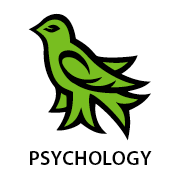A Crash Course to UVic Psychology for Prospective or Current Students
 So, you’re thinking of (or already are) majoring in psychology at UVic! This program is unique in that it allows you to focus your interests on specific areas of mental health and psychological research, making it tailored to your individual passions.
So, you’re thinking of (or already are) majoring in psychology at UVic! This program is unique in that it allows you to focus your interests on specific areas of mental health and psychological research, making it tailored to your individual passions.
I enjoyed my time so immensely in the UVic PSYC program and wanted to give a little “crash course” for those who are curious about what this major looks like and how your undergrad will play out should you choose psychology.
BA or BSc?
One of the first things you’ll need to consider when choosing psychology as your major is whether you want to do a Bachelor of Arts (BA) or a Bachelor of Science (BSc).
While the core psychology coursework is mostly the same between the two degrees, the differences are found in the required electives and co-requisites.
If you’re interested in having a lot of choice to explore different faculties and areas of study, the BA program may be more your style. This is the one that I went with as well, and I really enjoyed the freedom I got with choosing my electives. You can pretty much choose any class you want between a variety of subjects, which allows you to expand on areas other than psychology and social science.
Should you want to delve more into the scientific aspects of psychology and explore other domains of science, you may want to consider a BSc. The psychology courses for the BSc program are all the same, but what makes this degree unique is that some of your elective credits are required to be science-based.
Additionally, some of your co-requisites have you take specific science courses and give you a more narrow list of courses to choose from. It’s a great program for people who want to combine social sciences with things like biology, biochemistry, physics, etc.
Streams
Once you get into second year, you’ll be taking introductory courses in the four streams offered in the psychology program. These include: PSYC 231 (Social Psychology), PSYC 251 (Mind and Brain), PSYC 243 (Lifespan Development), and PSYC 260 (Mental Health and Well-Being).
In your third and fourth years, you’ll go further in three of these streams (you get to choose from four) and focus on more specific classes. For me, two of the ones I chose to focus on were mental health and well-being and lifespan development, as I was interested in the pathology of psychological disorders and the concepts of growth and human development.
The program includes choosing two courses from each of two of the streams, and one course from a third stream.
Social Psychology
This stream delves into issues in society, how we form relationships, and why we may interact in certain ways with those around us. Once you take PSYC 231, choices include the following courses: PSYC 330 (Personality), PSYC 375 (Interpersonal Relationships), PSYC 385 (Motivation, Emotion, and Well-Being), PSYC 386 (Cultural Psychology), and PSYC 387 (Stereotyping, Prejudice and Discrimination).
Mind and Brain
If you’re someone who thinks neuroanatomy and the human brain is really neat, it may be beneficial to take courses in the mind and brain stream. Upon completion of PSYC 251, course choices include the following: PSYC 351A (Cognitive Psychology), PSYC 351B (Human Neuropsychology), PSYC 351C (Cognitive Neuroscience), and PSYC 351D (Biopsychology).
Lifespan Development
From birth to death, humans go through a variety of physical and cognitive changes. Lifespan development explores these concepts and the various stages of life. After taking PSYC 243, choices include these courses: PSYC 335 (Infant and Child Development), PSYC 336 (Adolescent Development), and PSYC 339 (Adult Development and Aging).
Mental Health and Well-Being
Understanding how the mind works and how psychological disorders impact daily functioning, this stream focuses on the clinical aspects of psychology, focusing on illnesses and factors that influence well-being. When you’re done taking PSYC 260, you can choose from these: PSYC 332 (Health Psychology), PSYC 338 (Behavioural Interventions with Children and Adults), PSYC 365 (Fundamentals of Clinical Psychology), and PSYC 366 (Psychological Disorders of Childhood and Adolescence).
Honours
Some students may want to go further than a major program and go into honours. Psychology honours is highly competitive and students usually need to have a high GPA and be in their third year to apply.
What makes this program different from the major program is that you have to take additional classes in statistics and research, secure a supervisor from the psychology department, and write an honours thesis.
This is a great choice for students who are wishing to pursue graduate studies in psychology because it gives them research experience and connections with faculty members in their department.
Co-Op
Gaining work experience is a great way to dip your toes into your field before graduation. The psychology program offers an optional co-op designation where one term per year you’ll work at a job in your field of study (and get paid) and declare co-op on your degree.
In order to have a co-op designation added to your degree, you’ll have to take a minimum of 3 work terms during your studies. There is also the option to take a co-op work term without having a co-op designation.
In order to get into the co-op program, you’ll need a GPA of usually at least a B in all of your psychology courses, a B average overall, and be in at least second year.
Graduate School
Psychology opens a lot of doors, especially when it comes to further education. Whether you want to go into another field, continue psychological research, or prepare for a professional designation, there are many options for those that graduate with a psychology degree.
Psychological Research
If you want to focus on researching specific populations or discovering new domains of psychology, you may want to consider a master’s or PhD in psychology. This path also allows you to go into university teaching once you receive your doctorate degree.
This option is most suited for those who want to continue working and learning in academia.
Clinical Psychology
Does diagnosing psychological disorders and learning about human functioning sound appealing to you? There are options to going into clinical psychology which usually starts at the master’s level and requires you to obtain a PhD.
In order to work as a psychologist in the majority of Canada, you need to complete a doctorate in clinical psychology.
Counselling
There is an increased need for mental health professionals, and one of those is counsellors. A counsellor will usually provide therapy and advice for clients who are in distress, or having difficulty in areas of their lives.
They can focus on different client populations or issues, which allows them a lot of variety in their work. To be a counsellor in BC, you’ll require a Master’s degree in counselling psychology.
Work Opportunities
If you want to get your bachelor’s degree and work afterwards, there are also options with your psychology degree. Though, I won’t sugar-coat it, it can be especially difficult to find opportunities in the field of mental health with just a bachelor’s degree in psychology. However, with more experience, the more opportunities will open up, so if you don’t get exactly the job you want after graduation, you can definitely work up to it.
For me, I ended up getting a job as a unit clerk in an operating room at one of the local hospitals, which allows me to explore the health care field. It is especially useful for me as I am also currently in nursing school.
Usually, this job would require a certificate in medical administration, but I was able to be trained on the job because my degree qualified me immediately. Sometimes, it’s just about looking in the right places.
UVic also has career counselling and career services to figure out where you can go with your degree. Getting work experience in mental health while you’re in school can also be useful either through co-op or UVic work study.
Concluding Remarks
If you’re wanting to pursue psychology, it is a fascinating field where you learn so much about others and also about yourself. Psychology allowed me to expand my perspective and see things in a whole new light, and I am so thankful that I chose to study it during my first undergrad program.
If you have any questions about the psychology program or want to know more from a student’s perspective, feel free to leave a comment below and I’ll be sure to answer any questions you may have!
Useful Resources
Professional Psychology Associations
- Canadian Association of Counselling and Psychotherapy
- Canadian Psychological Association
- BC Association of Clinical Counsellors



